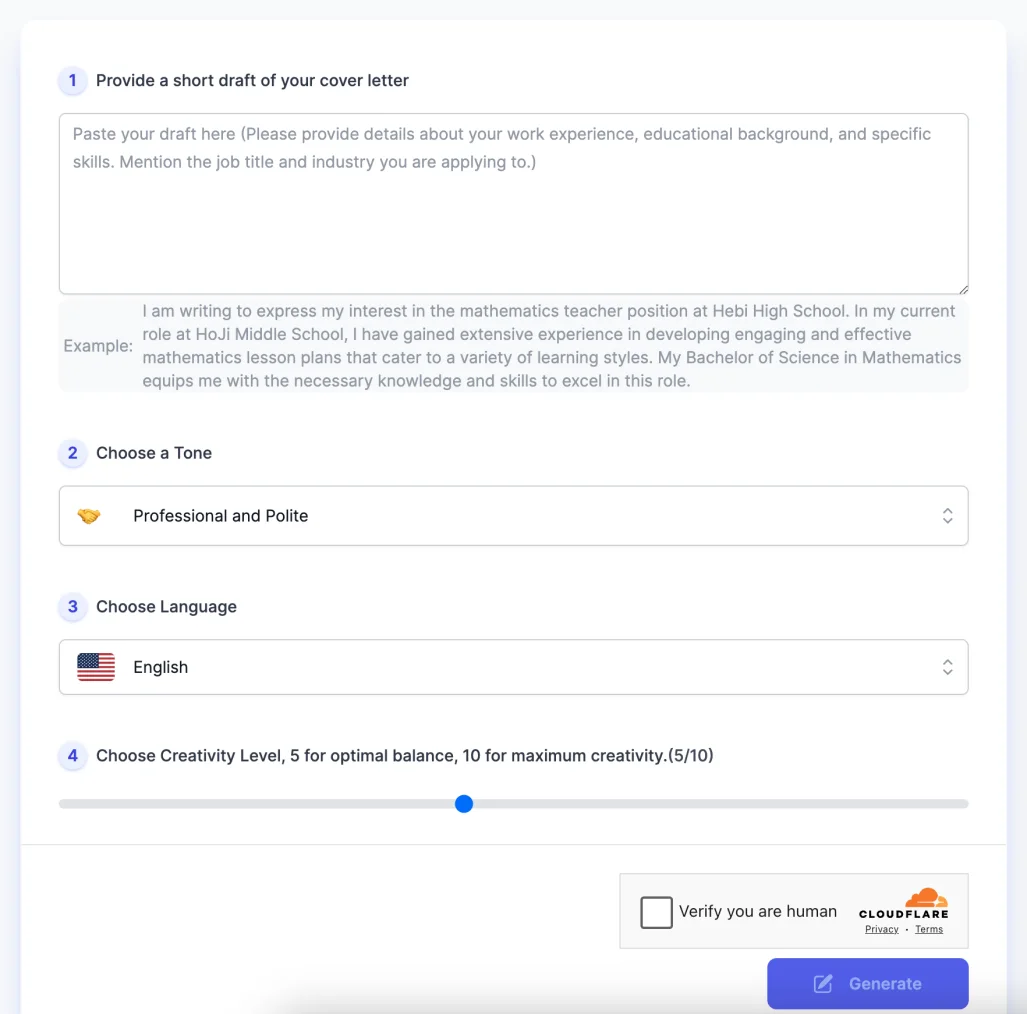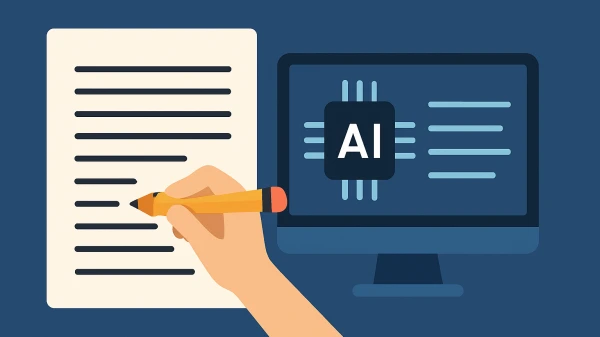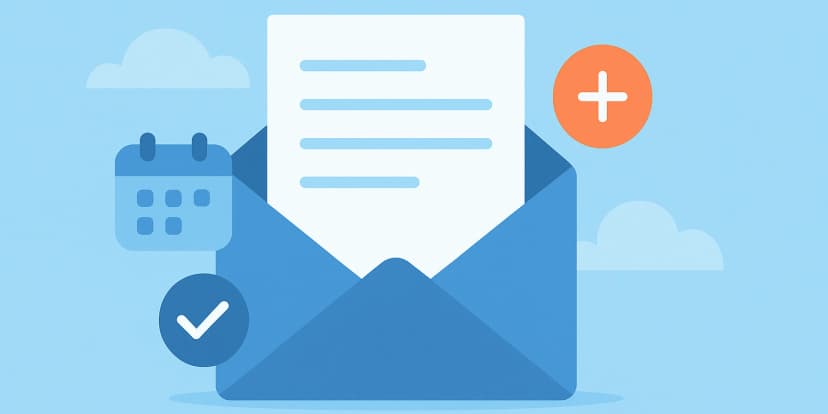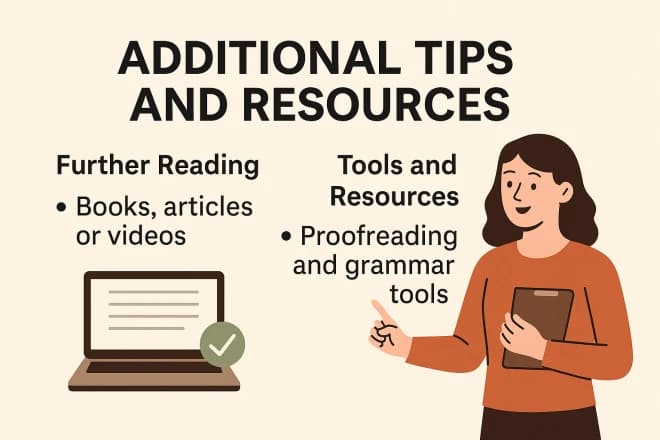Unlock Insights: Find the Answers You Seek on Our Blog
Ultimate Guide: How to Write a Winning Administrative Assistant Cover Letter
By Evelyn Sterling
A cover letter is essential in the job application process, acting as the initial interaction between an applicant and a potential employer. It complements the resume by detailing the applicant’s professional narrative, allowing them to express their personality, enthusiasm, and specific interest in the role.
For these roles, an effective cover letter goes beyond summarizing experience; it conveys the applicant’s grasp of the job’s importance and their competency in supporting executives and overseeing office tasks. Customizing the letter for the intended company and position demonstrates the applicant’s effort and interest, showcasing how their attributes and experiences distinctively position them for the job.
In a competitive environment, a tailored and thoughtful cover letter distinguishes an applicant, transforming their application into a persuasive endorsement of their candidacy.
Job Preparation for Administrative Assistant Position
Understanding the Role and Requirements
The role of an administrative assistant is multifaceted, requiring a blend of organizational skills, communication abilities, and technical knowledge. These professionals are the backbone of office operations, handling tasks that range from scheduling appointments and managing correspondence to supporting project work and maintaining records. Understanding the specific duties and requirements of the role within different organizations is crucial to effectively prepare for the job application.
Researching the Company
Researching the company you are applying to is an essential step in the job preparation process. Delve into their website, focusing on the mission statement, values, and recent news or achievements to understand the company’s culture and goals. Networking with current or past employees through professional platforms like LinkedIn can provide an insider’s perspective, enriching your understanding of how the administrative assistant role fits within the organization.
Aligning Skills with Company Needs
Align your skills with the company’s needs by reflecting on your past experiences in relation to the job description. Identify the key skills the employer is looking for and provide concrete examples from your work history that demonstrate these abilities. This reflection will not only aid in tailoring your cover letter but also prepare you for potential interviews.
Customizing the Cover Letter
Customizing your cover letter for each application is vital. While you don’t need to rewrite your cover letter entirely for every application, you should tailor it to highlight the most relevant aspects of your experience and skills in relation to the specific job and company. Address the hiring manager directly and mention specific details about the company and role to show your genuine interest and thorough preparation. This personalized approach significantly enhances the impact of your application and shows your dedication to the position.

Finding and Using Cover Letter Templates
Finding the Right Cover Letter Templates
To find suitable cover letter templates for administrative assistant roles, start by exploring online resources dedicated to career development and job search support. Websites like LinkedIn, Indeed, and Monster often provide free templates and samples specifically designed for various job roles, including administrative assistants. Additionally, professional organizations and career coaching services can offer industry-specific templates that might be more closely aligned with the expectations of employers in that sector.
When searching for templates, look for ones that have a clear, professional layout and are easily adaptable. The structure of the template should include an opening paragraph, a body that can be customized to detail your experiences and skills, and a closing paragraph that reiterates your interest in the position and calls for an interview.
Selecting Templates That Align with Your Style and Experience
Select a cover letter template that reflects your personal style and professional experience. If you have a strong background in a formal corporate environment, choose a template with a traditional and professional design. Conversely, if you are applying to a startup or creative industry, you might opt for a template with a more modern and innovative layout.
It’s important to consider how the template facilitates the presentation of your skills and experiences. A good template should allow you to clearly highlight your achievements and how they align with the job requirements. It should also be compatible with your resume in terms of design and formatting to ensure consistency across your application materials.
Customizing Templates for Specific Applications
Once you have selected a template, the next step is to customize it for each specific job application. Begin by modifying the greeting to address the hiring manager directly, using their name if possible. In the body of the letter, specifically tailor your experiences and skills to match the job description. Use concrete examples from your past work that clearly demonstrate how you meet or exceed each of the job requirements.
Adjust the language and tone of the template to match the company culture. For a formal corporation, maintain a professional and concise tone, while for a more relaxed startup environment, you might adopt a friendly and conversational style. Finally, ensure that the closing paragraph includes a call to action, such as expressing your desire for an interview and mentioning your availability to discuss your application further.
Customizing your cover letter template in this way not only shows your interest and effort in applying for the position but also significantly increases your chances of making a strong impression on the employer.
To further aid in the process of crafting an effective administrative assistant cover letter, here are varied types of templates as references. These examples cater to different experience levels and sectors, providing a broad spectrum of styles and content to help you start your writing journey.
Entry-Level Cover Letter for Administrative Assistant Template
- Focuses on educational background and internship experiences.
Highlights soft skills like communication, organization, and teamwork.
Example:
Dear [Hiring Manager’s Name],
With over [X years] of experience as an administrative assistant, I have developed a comprehensive skill set that aligns well with the demands of the role at [Company’s Name]. My expertise in managing complex scheduling, coordinating cross-functional communication, and leading administrative projects has enabled me to significantly contribute to…
Experienced Administrative Assistant Cover Letter Template
- Emphasizes career progression, key achievements, and specific skills relevant to the role.
Example:
Dear [Hiring Manager’s Name],
With over [X years] of experience as an administrative assistant, I have developed a comprehensive skill set that aligns well with the demands of the role at [Company’s Name]. My expertise in managing complex scheduling, coordinating cross-functional communication, and leading administrative projects has enabled me to significantly contribute to…
Industry-Specific Administrative Assistant Cover Letter Template
- Tailored to specific sectors such as healthcare, legal, or educational institutions.
Focuses on relevant experiences and terminologies used in the specific industry.
Example:
Dear [Hiring Manager’s Name],
As an administrative assistant with extensive experience in the [specific industry, e.g., healthcare] sector, I am well-versed in the unique challenges and responsibilities that come with the territory. My background in managing medical records, supporting clinical staff, and ensuring compliance with health regulations makes me an ideal candidate for [Company’s Name]…
Note: These templates serve as a starting point to help you structure your cover letter. Remember to personalize each template with your details, experiences, and the specific nuances of the job you are applying for, ensuring that your cover letter is both professional and uniquely yours.
Writing Skills for Effective Cover Letters
Key Components of a Compelling Cover Letter for Administrative Assistant
A compelling cover letter for an administrative assistant position should include the following key components:
- Introduction: Briefly introduce yourself and state the purpose of your letter. Mention the position you are applying for and how you learned about the job opening.
- Body: This section should be one or two paragraphs that detail your relevant experience, skills, and achievements. Connect your background directly to the job requirements, illustrating how you can address the company’s needs.
- Closing: Conclude your cover letter by reiterating your interest in the position and expressing your eagerness to discuss your application in further detail. Include a polite thank you and a professional closing salutation.
Writing Techniques to Showcase Your Skills and Experiences Effectively
- Use action verbs: Start sentences with action verbs like “managed,” “coordinated,” “implemented,” or “streamlined” to make your experiences sound more dynamic and impactful.
- Quantify achievements: Whenever possible, quantify your achievements with numbers, percentages, or other metrics to provide a clear picture of your capabilities and accomplishments.
- Tailor your message: Align your skills and experiences with the specific requirements of the job you are applying for, showing the employer how you are the ideal candidate for the role.
Highlighting Your Administrative Competencies and Soft Skills
- Emphasize both your administrative competencies (like organizational abilities, proficiency in office software, and communication skills) and your soft skills (such as problem-solving, teamwork, and adaptability).
- Provide examples of how you have used these skills in your previous roles to improve processes, support team objectives, or enhance efficiency in your work environment.
The Importance of Clarity, Conciseness, and Professionalism in Cover Letter Writing
- Clarity: Ensure your cover letter is easy to read and understand. Use simple, straightforward language and structure your content logically.
- Conciseness: Be brief yet comprehensive. Convey your message in as few words as possible without omitting important information. Avoid repetition and focus on the most relevant details.
- Professionalism: Maintain a professional tone throughout your cover letter. Use a formal greeting and closing, and proofread your letter carefully to avoid any spelling or grammatical errors. A professional, error-free cover letter reflects your attention to detail and seriousness about the job.
Crafting Your Cover Letter
Writing the Introduction, Body, and Conclusion
Introduction: Begin your cover letter with a strong opening statement that captures the hiring manager’s attention. Introduce yourself and specify the position you are applying for. Mention how you found out about the job opening, whether through a job board, a company website, or a referral. This section should be concise, setting the tone and establishing your enthusiasm for the position.
Body: This is where you delve into the specifics of your qualifications and how they align with the job requirements.
- First Paragraph: Start with a brief overview of your professional background, focusing on your most relevant experiences that relate to the administrative assistant role. Mention your current or most recent job and highlight key responsibilities and accomplishments.
- Second Paragraph: Go into more detail about specific skills or experiences that particularly qualify you for the position. Use concrete examples to illustrate how you’ve applied these skills in past roles. For instance, describe a project where you improved office efficiency, managed complex schedules, or supported a major company initiative.
- Third Paragraph: If necessary, include additional information that showcases other relevant skills or experiences, such as your proficiency in specific software tools, languages, or specialized training relevant to the administrative assistant role.
Conclusion: End your cover letter on a strong note with a call to action.
- Express your enthusiasm for the position and the company, and indicate your desire to further discuss how you can contribute to their team.
- Thank the reader for considering your application and suggest the possibility of an interview or meeting to discuss your application in more detail.
- Close with a professional sign-off, such as “Sincerely” or “Best regards,” followed by your name.
Making a Strong Opening Statement
To make a strong opening statement, be direct and express a genuine interest in the company and the role. Personalize the statement by mentioning the company’s name and referring to a specific aspect of their work that excites you. This approach shows that you have done your homework and are genuinely interested in being part of their team.
Illustrating Your Qualifications with Specific Examples
Use specific examples from your work history to demonstrate your qualifications. These examples should showcase your achievements and how they are directly related to the key requirements of the administrative assistant position. Quantify your successes wherever possible, as this provides clear evidence of your capabilities and achievements.
Concluding with a Call to Action
In the conclusion of your cover letter, encourage the hiring manager to take the next step. A call to action can be a request for an interview, a meeting, or simply a conversation to discuss your application further. This shows your proactive attitude and eagerness to move forward in the selection process.
Final Touches
Proofreading and Editing Your Cover Letter
Proofreading and editing are critical steps in finalizing your cover letter. Carefully review your letter to correct any spelling, grammar, or punctuation errors. Pay attention to verb tense consistency and ensure that your sentences are clear and concise. Editing involves not only fixing mistakes but also refining the language to improve readability and impact. This might include varying sentence structure, removing redundant words, and ensuring the tone remains professional throughout.
Getting Feedback from Mentors or Peers
Feedback from mentors, peers, or colleagues can provide invaluable insights into how your cover letter might be perceived by a potential employer. A fresh set of eyes can catch errors you might have overlooked and suggest improvements to enhance the letter’s content and structure. Choose individuals who have experience with hiring processes, understand the industry you’re applying to, or have a strong command of effective writing.
Importance of a Professional Format and Clean Layout
The format and layout of your cover letter contribute to the first impression it makes. Use a clean, professional layout that matches your resume to ensure a cohesive application package. Stick to standard fonts like Times New Roman, Arial, or Calibri in a readable size (typically 10-12 points). Margins should be uniform, generally around 1 inch on all sides, creating a tidy, organized appearance on the page.
Make sure your contact information is clearly visible at the top, followed by the date and the recipient’s details. Use spacing effectively to separate sections, making the letter easier to read. A well-organized layout helps to emphasize the key points you want the hiring manager to notice and reflects your ability to present information in an accessible and professional manner.
Taking the time to apply these final touches can significantly enhance the quality and effectiveness of your cover letter, demonstrating your attention to detail and commitment to presenting yourself in the best possible light.
Utilizing AI Cover Letter Generators to Enhance Job Opportunities
AI cover letter generator is a sophisticated tool designed to help job seekers create well-structured, personalized, and professional cover letters efficiently.
What Is AI Cover Letter Generator
It is a online AI tool that utilizes advanced natural language processing (NLP) to help job seekers create personalized and professional cover letters. Users input details about their work experience, skills, and the job they’re applying for, and the tool generates a customized cover letter. It offers customization options for tone, language, and creativity level, aiming to streamline the cover letter writing process and enhance the user’s job application.
How To Use the AI Cover Letter Generator

- Enter your work experience, skills, and job title in the provided text box.
- Choose the desired tone from the dropdown menu.
- Select your preferred language.
- Adjust the creativity level using the slider.
- Click the generate button to create your custom cover letter.
Tips for Maximizing the Effectiveness of AI Cover Letter Generators
- Provide detailed information: The more specific you are about your skills, experiences, and the job you want, the more accurately the AI can tailor the cover letter to your needs.
- Review and customize: Always review the AI-generated cover letter and make necessary adjustments to add a personal touch, ensuring it truly reflects your voice and meets the job’s specific demands.
- Use as a starting point: Consider the AI-generated letter as a draft or template. Use it as a foundation to build upon, integrating your personal anecdotes and specific examples that demonstrate your qualifications.
Incorporating AI cover letter generators into your job application process can be a strategic move to enhance your job opportunities. This tool provide a strong starting point, saving time and helping to ensure your application stands out to potential employers.
We’ve covered the essential aspects of crafting an effective administrative assistant cover letter, including understanding the job role, using AI Cover Letter Generator for template generation, and emphasizing writing skills that showcase your qualifications. By following these guidelines and leveraging technology, you can create personalized, impactful cover letters. Approach this process with confidence and creativity to make a strong impression on potential employers and enhance your chances of securing the desired job position.
AI Tools Categories
Browse all AI tools by category
All AI Tools
229Amazon
5AI Writing Generator
85Article & Content Writing
35Branding & Identity
54Content Generation
170Creative Ideas
32Educational Resources
34E-commerce
14Etsy
6Events & Celebrations
13Facebook
6Gaming & Fun
5Instagram
3Lifestyle & Personal
8LinkedIn
6Marketing & SEO
40Poem & Lyrics Writing
19Professional Documents
31Social Media
44Story & Book Writing
49Text Effects
14TikTok
7Twitter
3Writing Enhancement
36YouTube
11
Highly rated and most popular AI tools curated by our experts
Recently added AI tools that are gaining traction
- AI Post Generator

- AI Bullet Point Generator

- AI Discussion Post Generator

- AI 2 Weeks Notice Letter Generator

- AI Content Creation Ideas Generator

- AI Radio Ad Script Generator

- AI Podcast Script Generator

- AI Resume Objective Generator

- AI Resume Headline Generator

- AI Password Generator

- AI Snapchat Caption Generator

- AI Snapchat Username Generator

- AI Pinterest Board Name Generator

- AI LinkedIn Experience Description Generator

- AI Twitter Hashtag Generator

- AI YouTube Short Idea Generator

we prioritize displaying the latest content closely related to the current blog post.







